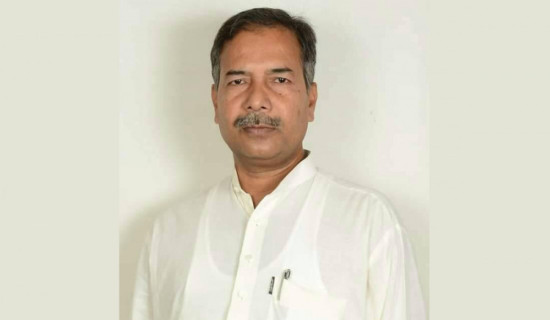- Wednesday, 4 February 2026
Investment In Nutrition
The importance of good nutrition cannot be overstated. Not only does it provide essential vitamins and minerals, but it also improves overall physical and mental well-being of people. Good nutrition reduces the risk of some diseases, including heart diseases, stroke, cancer, and high blood pressure. It also lowers high cholesterol, improves well-being, enhances human body's ability to fight illness and recover from illness or injury, as well as increases energy level, among other benefits.
Good nutrition provides human body all the vitamins, and minerals it needs to stay fit and work optimally. One proven way to give our body the nutrients it needs is by regularly eating a variety of fruits and vegetables. Conversely, the state of malnutrition can result in poor health, diseases and untold suffering. A total of 45 per cent of all deaths of children under age five is linked to malnutrition. An estimated 149 million children under age five are stunted (too short for their age) as a result of chronic undernourishment, many of whom are subsequently cognitively impaired. The consequences of mortality and illness associated with malnutrition directly undermine human capital and economic productivity.
In an effort to ensure Nepali people get the right amount of nutrition right from birth, the National Planning Commission (NPC) has launched the third Multi-Sector Nutrition Plan (MSNP-III) for eight years. The Rs. 189.45 billion project aims at ensuring availability of people's access to qualitative nutrition service to improve the status of nutrition, planning to mobilise estimated Rs. 172.86 billion for the regular nutrition-related programmes implemented by the line-ministries and Rs. 16.58 billion on additional programmes.
Overall, the MSNP-III focuses on improving the availability, quality and accessibility of nutrition-specific and nutrition-sensitive services, while also promoting positive social behaviour change. The aim is to institutionalise a nutrition-friendly governance system across all three tiers of government. The new plan is expected to provide a clear roadmap for integrating nutrition projects and programmes by the government and development partners, minimising duplication, optimising resources, and ensuring more effective implementation.
The plan holds special significance as the country still struggles with a significant malnutrition challenge, which is compounded by its socio-economic conditions, limited access to healthcare, poor maternal nutritional status, food insecurity, poor hygienic conditions, among others. That said, things have improved markedly, too.
According to the Nepal Demographic and Health Survey 2022, nutrition situation in the country has improved significantly in one decade. For example, anaemia in girl child and women of reproductive age has gone down to 34 per cent in 2022 from 43 per cent in 2011, while stunting in children below five years of age has decreased to 25 per cent from 41 per cent. According to a NPC report, significant achievements have also been made in the use of maternal and child health care, basic water supply and sanitation facility, school enrolment and school completion rate.
There's no denying that investing in nutrition pays off handsomely in terms of lives saved and sufferings prevented. It is a well substantiated fact that for every $1 invested in nutrition, $16 is returned to the local economy. But too little global development assistance is said to be dedicated to nutrition, despite the fact that malnutrition causes massive economic losses, health risks, and cognitive impairments. In this context, the NPC's plan to boost nutrition is a much-needed step expected to bring wonderful results.

















